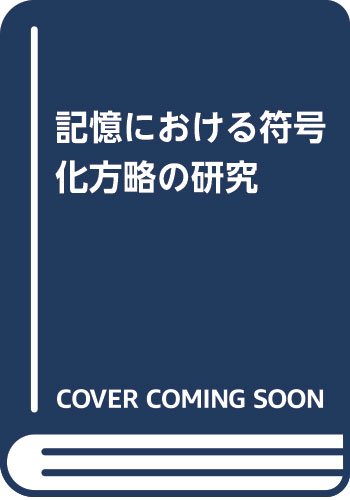1 0 0 0 OA 認知インタビューの有効性に及ぼす被面接者の性格特性の影響
- 著者
- 山内 佑子 高橋 雅延 伊東 裕司
- 出版者
- 法と心理学会
- 雑誌
- 法と心理 (ISSN:13468669)
- 巻号頁・発行日
- vol.7, no.1, pp.83-92, 2008 (Released:2017-06-02)
認知インタビュー(Cognitive Interview:以下CI)は認知心理学の実験的知見をもとにFisherとGeiselmanによって開発された記憶促進のための事情聴取方法である。想起方法としてCI技法を用いない標準インタビュー(Standard Interview:以下SI)とCIの2条件を設けて比較した従来の研究では、CIはSIよりも正確な情報を引き出すことが明らかにされている。本研究では2つの実験において、CIの有効性に及ぼす目撃者の性格特性の差異の影響を検討した。すなわち、参加者を向性テストの結果によって外向性高群と外向性低群に分けた後、銀行強盗の短いビデオを呈示した。実験1ではSI条件とCI条件を比較した。実験2では全員がCIを受ける前に、CI技法による想起の経験か、CI技法によらない想起の経験のいずれかを行った。その結果、CIの有効性は目撃者の性格特性によって影響を受けることが明らかとなった。これらの結果についてはCIにおけるラポール形成の面から考察した。
1 0 0 0 OA 記憶における精緻化様式の相違と精緻化対象についての検討
- 著者
- 高橋 雅延
- 出版者
- 公益社団法人 日本心理学会
- 雑誌
- 心理学研究 (ISSN:00215236)
- 巻号頁・発行日
- vol.57, no.6, pp.357-364, 1987-02-27 (Released:2010-07-16)
- 参考文献数
- 18
- 被引用文献数
- 1
Two experiments were designed to examine the relationship between elaboration and to-be-elaborated items in paired-associate learning. In the first task of both experiments, 20 subjects were presented with a sequence of 32 noun words to be elaborated, and instructed either to generate sentences or to produce associates. In second task, the subjects were asked to remember pairs of words either incidentally (Exp. I) or intentionally (Exp. II). The first word of the pairs, referred to as the context word, was used later as a cue for cued recall, while the second word, as the target word, was to be recalled. Three different types of pairs were constructed: (i) C pairs, in which the context word was elaborated and the target word was not, (ii) T pairs, in which the target word was elaborated and the context word was not, and (iii) CT pairs, in which both words were elaborated. Subjects who generated sentences remembered the items better than subjects who produced associations. Both T and CT pairs were more recalled than C. pairs, while there was no difference in recall between T and CT pairs. The results suggest that the type of to-be-elaborated items is an important factor in elaborative process.
- 著者
- 高橋 雅延
- 出版者
- 日本認知科学会
- 雑誌
- 認知科学 (ISSN:13417924)
- 巻号頁・発行日
- vol.7, no.4, pp.361-363, 2000-12-01 (Released:2008-10-03)
- 参考文献数
- 4
1 0 0 0 認知インタビューの有効性に及ぼす被面接者の性格特性の影響
認知インタビュー(Cognitive Interview:以下CI)は認知心理学の実験的知見をもとにFisherとGeiselmanによって開発された記憶促進のための事情聴取方法である。想起方法としてCI技法を用いない標準インタビュー(Standard Interview:以下SI)とCIの2条件を設けて比較した従来の研究では、CIはSIよりも正確な情報を引き出すことが明らかにされている。本研究では2つの実験において、CIの有効性に及ぼす目撃者の性格特性の差異の影響を検討した。すなわち、参加者を向性テストの結果によって外向性高群と外向性低群に分けた後、銀行強盗の短いビデオを呈示した。実験1ではSI条件とCI条件を比較した。実験2では全員がCIを受ける前に、CI技法による想起の経験か、CI技法によらない想起の経験のいずれかを行った。その結果、CIの有効性は目撃者の性格特性によって影響を受けることが明らかとなった。これらの結果についてはCIにおけるラポール形成の面から考察した。
1 0 0 0 記憶における符号化方略の研究
1 0 0 0 記憶における符号化方略の研究
1 0 0 0 対人記憶に及ぼす対人感情の影響と符号化要因の分析
1.実験1強烈な感情が対人記憶に及ぼす制御効果について検討するために、ある人物の一日の行動を写した写真18枚を材料とし、情動的な刺激(死体)を提示した場合(情動群16名)の前後の記憶について、情動的な刺激を提示しない場合(中立群16名)の再認記憶と比較検討した。その結果、ネガティブな感情が対人記憶に対して順向抑制効果を与えることが明らかとなった。これは、そのような状況において、精緻な処理が行えず、記憶が悪くなったのではないかと考えられた。2.実験2ある男子大学生の一日について述べられた文章を材料とした。そして、この男子学生に抱く対人感情(ポジティブ感情、ネガティブ感情)を操作するために、その人物の友好的描写を読ませるネガティブ感情群27名を設け、1時間後に、文章の偶発自由再生を求めた。その結果、対人記憶課題では、ポジティブ感情をもった群の方が、行動の種類によっては、そのような感情の源となった行動とは一致しない敵意性行動の再生成績が高い傾向が見受けらた。このように、行動によって結果のパタンが異なることから、矛盾情報というように一つのカテゴリで行動をまとめてしまうのではなく、矛盾情報の中でも、細かく行動別に調べていくことが必要であると思われる。

